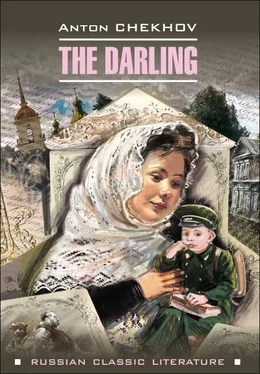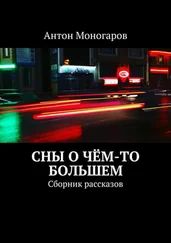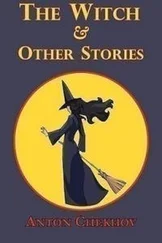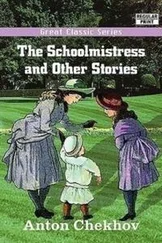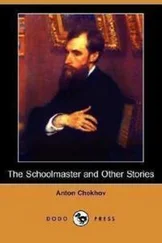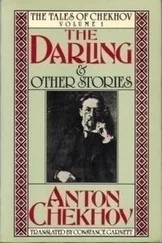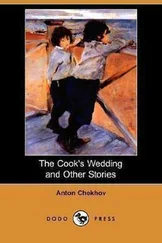Антон Чехов - The darling / Душечка. Сборник рассказов
Здесь есть возможность читать онлайн «Антон Чехов - The darling / Душечка. Сборник рассказов» — ознакомительный отрывок электронной книги совершенно бесплатно, а после прочтения отрывка купить полную версию. В некоторых случаях можно слушать аудио, скачать через торрент в формате fb2 и присутствует краткое содержание. Год выпуска: 2019, ISBN: 2019, Издательство: Литагент Каро, Жанр: Классическая проза, Русская классическая проза, Прочая научная литература, на английском языке. Описание произведения, (предисловие) а так же отзывы посетителей доступны на портале библиотеки ЛибКат.
- Название:The darling / Душечка. Сборник рассказов
- Автор:
- Издательство:Литагент Каро
- Жанр:
- Год:2019
- ISBN:978-5-9925-1149-9
- Рейтинг книги:5 / 5. Голосов: 1
-
Избранное:Добавить в избранное
- Отзывы:
-
Ваша оценка:
- 100
- 1
- 2
- 3
- 4
- 5
The darling / Душечка. Сборник рассказов: краткое содержание, описание и аннотация
Предлагаем к чтению аннотацию, описание, краткое содержание или предисловие (зависит от того, что написал сам автор книги «The darling / Душечка. Сборник рассказов»). Если вы не нашли необходимую информацию о книге — напишите в комментариях, мы постараемся отыскать её.
The darling / Душечка. Сборник рассказов — читать онлайн ознакомительный отрывок
Ниже представлен текст книги, разбитый по страницам. Система сохранения места последней прочитанной страницы, позволяет с удобством читать онлайн бесплатно книгу «The darling / Душечка. Сборник рассказов», без необходимости каждый раз заново искать на чём Вы остановились. Поставьте закладку, и сможете в любой момент перейти на страницу, на которой закончили чтение.
Интервал:
Закладка:
“Yes; I … I am.”
“Then what’s the use of talking? Talk won’t help … You are in love, aren’t you?”
“Yes …” Polinka whispers hesitatingly, and big tears gush from her eyes.
“What is there to say?” mutters Nikolay Timofeitch, shrugging his shoulders nervously and turning pale. “There’s no need of talk … Wipe your eyes, that’s all. I … I ask for nothing.”
At that moment a tall, lanky shopman comes up to the pyramid of boxes, and says to his customer:
“Let me show you some good elastic garters that do not impede the circulation, they are certified by medical authorities …”
Nikolay Timofeitch screens Polinka, and, trying to conceal her emotion and his own, wrinkles his face into a smile and says aloud:
“There are two kinds of lace, madam: cotton and silk! Oriental, English, Valenciennes, crochet, torchon, are cotton. And rococo, soutache, Cambray, are silk … For God’s sake, wipe your eyes! They’re coming this way!”
And seeing that her tears are still gushing he goes on louder than ever:
“Spanish, rococo, soutache, Cambray … stockings, thread, cotton, silk …”
ANYUTA
In the cheapest room of a big block of furnished apartments Stepan Klotchkov, a medical student in his third year, was walking to and fro, zealously conning his Anatomy lesson. His mouth was dry and his forehead perspiring from the unceasing effort to learn it by heart.
In the window, covered by patterns of frost, on a stool the girl sat who shared his room – Anyuta, a thin little brunette of five-and-twenty, very pale with mild grey eyes. Sitting with bent back she was busy embroidering with red thread the collar of a man’s shirt. She was working against time … The clock in the passage drowsily struck two, yet the little room had not been put to rights for the morning. Crumpled bed-clothes, pillows thrown about, books, clothes, a big filthy slop-pail filled with soap-suds in which cigarette ends were swimming, and the litter on the floor – all seemed as though purposely jumbled together in one confusion …
“The right lung consists of three parts …” Klotchkov repeated. “Boundaries! Upper part on anterior wall of thorax reaches the fourth or fifth rib, on the lateral surface, the fourth rib … behind to the spina scapulae. 25 25 spina scapulae – ( Latin ) shoulder-blade
Klotchkov raised his eyes to the ceiling, striving to visualise what he had just read. Unable to form a clear picture of it, he began feeling his upper ribs through his waistcoat.
“These ribs are like the keys of a piano,” he said. “One must familiarise oneself with them somehow, if one is not to get muddled over them. One must study them in the skeleton and the living body … I say, Anyuta, let me pick them out.”
Anyuta put down her sewing, took off her blouse, and straightened herself up. Klotchkov sat down facing her, frowned, and began counting her ribs.
“H’m! … One can’t feel the first rib; it’s behind the shoulder-blade … This must be the second rib … Yes … this is the third … this is the fourth … H’m! … yes … Why are you wriggling?”
“Your fingers are cold!”
“Come, come … it won’t kill you. Don’t twist about. That must be the third rib, then … this is the fourth … You look such a skinny thing, and yet one can hardly feel your ribs. That’s the second … that’s the third … Oh, this is muddling, and one can’t see it clearly … I must draw it … Where’s my crayon?”
Klotchkov took his crayon and drew on Anyuta’s chest several parallel lines corresponding with the ribs.
“First-rate. That’s all straightforward … Well, now I can sound you. Stand up!”
Anyuta stood up and raised her chin. Klotchkov began sounding her, and was so absorbed in this occupation that he did not notice how Anyuta’s lips, nose, and fingers turned blue with cold. Anyuta shivered, and was afraid the student, noticing it, would leave off drawing and sounding her, and then, perhaps, might fail in his exam.
“Now it’s all clear,” said Klotchkov when he had finished. “You sit like that and don’t rub off the crayon, and meanwhile I’ll learn up a little more.”
And the student again began walking to and fro, repeating to himself. Anyuta, with black stripes across her chest, looking as though she had been tattooed, sat thinking, huddled up and shivering with cold. She said very little as a rule; she was always silent, thinking and thinking …
In the six or seven years of her wanderings from one furnished room to another, she had known five students like Klotchkov. Now they had all finished their studies, had gone out into the world and of course like respectable people, had long ago forgotten her. One of them was living in Paris, two were doctors, the fourth was an artist, and the fifth was said to be already a professor. Klotchkov was the sixth … Soon he, too, would finish his studies and go out into the world. There was a fine future before him, no doubt, and Klotchkov probably would become a great man, but the present was anything but bright; Klotchkov had no tobacco and no tea, and there were only four lumps of sugar left. She must make haste and finish her embroidery, take it to the woman who had ordered it, and with the quarter rouble she would get for it, buy tea and tobacco.
“Can I come in?” asked a voice at the door.
Anyuta quickly threw a woollen shawl over her shoulders. Fetisov, the artist, walked in.
“I have come to ask you a favour,” he began, addressing Klotchkov and glaring like a wild beast from under the long locks that hung over his brow. “Do me a favour; lend me your young lady just for a couple of hours! I’m painting a picture, you see, and I can’t get on without a model.”
“Oh, with pleasure,” Klotchkov agreed. “Go along, Anyuta.”
“The things I’ve had to put up with there,” Anyuta murmured softly.
“Rubbish! The man’s asking you for the sake of art, and not for any sort of nonsense. Why not help him if you can?”
Anyuta began dressing.
“And what are you painting?” asked Klotchkov.
“Psyche; it’s a fine subject. But it won’t go, somehow. I have to keep painting from different models. Yesterday I was painting one with blue legs. ‘Why are your legs blue?’ I asked her. ‘It’s my stockings stain them,’ she said. And you’re still grinding! Lucky fellow! You have patience.”
“Medicine’s a job one can’t get on with without grinding.”
“H’m! … Excuse me, Klotchkov, but you do live like a pig! It’s awful the way you live!”
“How do you mean? I can’t help it … I only get twelve roubles a month from my father, and it’s hard to live decently on that.”
“Yes … yes …” said the artist, frowning with an air of disgust; “but still you might live better … An educated man is bound to have taste, isn’t he? And goodness knows what it’s like here! The bed not made, the slops, the dirt … yesterday’s porridge in the plates … foo!”
“That’s true,” said the student in confusion; “but Anyuta has had no time to-day to tidy up; she’s been busy all the while.”
When Anyuta and the artist had gone out Klotchkov lay down on the sofa and began learning, lying down;
then he accidentally dropped asleep and waking up an hour later propped his head on his fists and sank into gloomy reflection. He recalled the artist’s words that an educated man was bound to have taste, and his surroundings actually struck him now as loathsome and revolting. He saw, as it were in his mind’s eye, his own future, when he would see his patients in his consulting-room, drink tea in a large dining-room in the company of his wife, a real lady. And now that slop-pail in which the cigarette ends were swimming looked incredibly disgusting. Anyuta, too, rose before his mental eye – a plain, slovenly, pitiful figure … and he made up his mind to part with her at once, at all costs.
Читать дальшеИнтервал:
Закладка:
Похожие книги на «The darling / Душечка. Сборник рассказов»
Представляем Вашему вниманию похожие книги на «The darling / Душечка. Сборник рассказов» списком для выбора. Мы отобрали схожую по названию и смыслу литературу в надежде предоставить читателям больше вариантов отыскать новые, интересные, ещё непрочитанные произведения.
Обсуждение, отзывы о книге «The darling / Душечка. Сборник рассказов» и просто собственные мнения читателей. Оставьте ваши комментарии, напишите, что Вы думаете о произведении, его смысле или главных героях. Укажите что конкретно понравилось, а что нет, и почему Вы так считаете.
